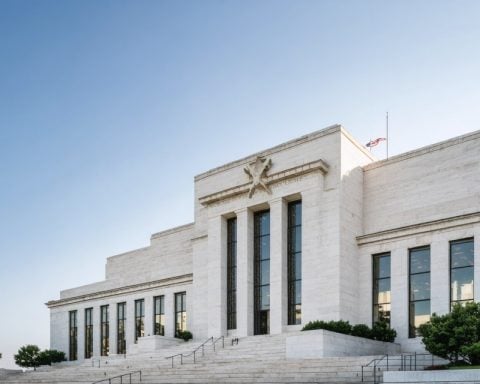Growing Friction Between the U.S. and Colombia
In an escalating diplomatic clash, President Donald Trump has initiated a wave of deportations for undocumented individuals with criminal records. This action was met with resistance from Colombia, which blocked U.S. planes carrying these deportees from landing, leading to Trump’s stern response outlining punitive measures.
In a recent social media post, Trump expressed his frustration, pointing to Colombia’s President Gustavo Petro, whose popularity has significantly waned among citizens. The U.S. leader condemned the refusal of entry for repatriation flights, claiming it poses a threat to American safety and security.
In retaliation, Trump announced emergency tariffs set at 25% on Colombian imports, with plans for further increases, alongside a travel ban affecting Colombian officials. Additional steps include heightened inspections of Colombian cargo and travelers, alongside potential sanctions rooted in national security legislation.
In a surprising twist, Petro countered Trump’s actions by rejecting the characterization of Colombians as criminals, demanding a respectful policy towards migrants from the U.S. Amid rising tensions, he offered resources for the repatriation of deportees under better conditions.
The situation highlights the fragile dynamics of the U.S.-Colombia relationship, underscoring the complexities in addressing migration while ensuring national security. As both nations navigate this challenging chapter, the global community watches closely.
Implications of U.S.-Colombia Friction
The escalating tension between the U.S. and Colombia is poised to have significant consequences beyond the immediate diplomatic squabbles. The impact on global trade could be profound, as Colombia is a key player in the Latin American economy. The imposition of emergency tariffs could disrupt supply chains and inflame market volatility, particularly in the agricultural sector, where Colombian exports like coffee and flowers are vital to U.S. importers.
Culturally, this friction may exacerbate negative perceptions of migrants within both nations. As migration trends intensify, the portrayal of Colombians, often victimized by violence and poverty, as “criminals” risks deepening societal rifts. This sentiment could hinder cross-cultural exchanges and foster xenophobia in a region where shared history and familial ties are common.
Moreover, environmental implications are emerging as collateral effects of trade sanctions. Increased tariffs may stimulate illicit activities such as deforestation and illegal mining, as economic desperation drives marginalized communities towards unsustainable practices.
Looking forward, the long-term significance of this diplomatic rift could signal a shift in alliances within the Americas. Countries observing the U.S.-Colombia spat may reconsider their positions regarding American policies, potentially leading to a regional realignment that favors increased cooperation among Latin American nations against perceived Northern hegemony. The ramifications of these diplomatic maneuvers could reshape socio-economic landscapes and cultural dynamics for years to come.
Escalating Tensions: What the Diplomatic Clash Between the U.S. and Colombia Means for Global Relations
Understanding the U.S.-Colombia Diplomatic Crisis
The recent diplomatic tensions between the United States and Colombia shed light on broader issues affecting international relations, particularly regarding migration and trade. President Donald Trump’s aggressive strategies towards illegal immigration, especially concerning deportations, have sparked a series of reactions from the Colombian government, leading to significant repercussions on both sides.
Key Insights into the Situation
1. Tariff Implications: The imposition of a 25% emergency tariff on Colombian imports by the U.S. government underscores the economic stakes involved. This move aims to exert pressure on Colombia to comply with U.S. immigration policies but may have unintended consequences on the U.S. economy, especially in sectors reliant on Colombian exports such as coffee and flowers.
2. Migration Policies and Human Rights: The refusal by Colombia to accept deportation flights raises important questions about the treatment of deportees. President Gustavo Petro’s insistence on a more humane repatriation process reflects a growing recognition of human rights issues related to international migration. The situation highlights the complexity of migration policies where national security and human rights intersect.
Pros and Cons of the Current Diplomatic Stand-off
Pros:
– Enhanced visibility of human rights concerns in deportation policies.
– Opportunities for diplomatic negotiations that could lead to more humane immigration solutions.
Cons:
– Increased economic strain on Colombian sectors relying on exports to the U.S.
– Deterioration of diplomatic relations which could lead to broader geopolitical tensions.
Potential Outcomes and Predictions
As the U.S. and Colombia navigate these turbulent waters, several potential outcomes may emerge:
– Negotiated Resolution: There is a possibility of bilateral negotiations focusing on future immigration policies that prioritize humane treatment while addressing security concerns.
– Wider Geopolitical Ramifications: Other nations observing this clash may reassess their own immigration policies and relations with the U.S.
– Economic Impact: If tariffs escalate, both economies could face significant repercussions, sparking calls for a reevaluation of trade agreements.
Comparing Global Responses to Immigration Issues
This diplomatic clash is part of a larger global narrative concerning immigration. Other nations are experiencing their own challenges:
– European Union: Rising tensions between member states regarding refugee policies, leading to fracturing unity.
– Australia: Tight immigration policies and offshore processing of asylum seekers highlight conflicts between national security and human rights.
Conclusion
The conflict between the U.S. and Colombia represents more than a bilateral issue; it reflects the complexity of modern immigration challenges and the intersection of human rights with national security. As both nations grapple with their respective policies, global audiences are keenly observing how these conflicts will evolve and what they might mean for international relations at large.
For more on international relations and global trade policies, visit Global Issues.
















